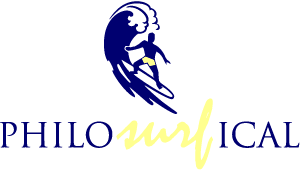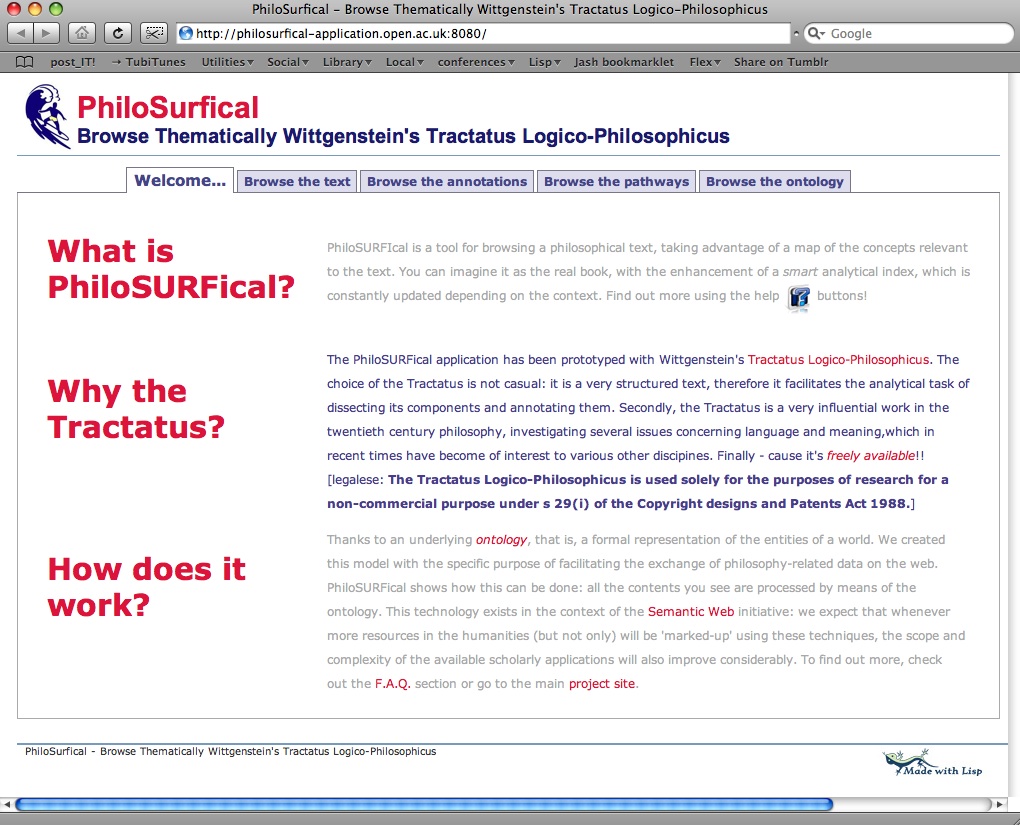About

The Philosurfical project provided a digital platform that mapped the connections between key concepts, figures, and texts within the history of philosophy. It utilised semantic web technologies to create a dynamic and interactive philosophical ontology, enabling users to explore the relationships between philosophical ideas and their development over time.
Tour
Users navigated through an interactive interface that visualised the complex network of philosophical concepts and thinkers. The platform allowed for an intuitive exploration of the ontology, offering insights into how different ideas intersected across various periods, movements, and regions. This digital map provided an accessible way for students, researchers, and enthusiasts to engage with philosophical discourse.

Ontology
The core of the Philosurfical platform was its ontology, which systematically categorised and linked philosophical concepts, thinkers, and texts. This ontology was designed to reflect the intricate relationships within philosophical discourse, allowing users to trace the evolution of ideas across different contexts. It served as both a research tool and an educational resource, making complex philosophical networks more accessible.
Publications
Pasin, M. and Motta, E. (2011) Ontological requirements for annotation and navigation of philosophical resources, Synthese, 182, 2, pp. 235-267, Springer Netherlands.
Pasin, M., Motta, E. and Zdrahal, Z. (2007) Capturing Knowledge About Philosophy, K-CAP 2007 – The Fourth International Conference on Knowledge Capture.
Pasin, M. (2007) PhiloSURFical: browse Wittgenstein’s Tractatus with the Semantic Web, The 30th International Wittgenstein Symposium of the Austrian Ludwig Wittgenstein Society (ALWS), Kirchberg am Wechsel, Lower Austria.
Pasin, M. and Motta, E. (2007) Supporting Philosophers’ Work through the Semantic Web: Ontological Issues, Workshop: Fifth International Workshop on Ontologies and Semantic Web for E-Learning (SWEL-07), Marina Del Rey, California, USA.